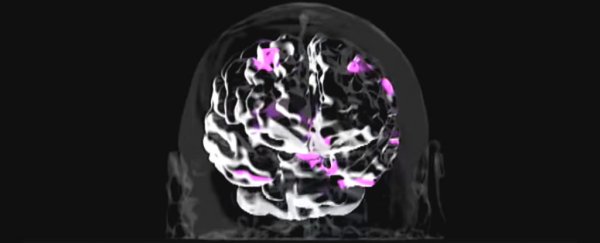Doesn't matter whether you love metal, classical, pop, or, erm, cat music, everyone's brain responds to music in much the same way. Scans have shown that the regions in the brain most involved in processing music are associated with movement, attention, motor planning, and yep, the auditory cortex, and while that probably doesn't sound so surprising to you, scientists don't really know what to make of it.
Turns out, our brains respond to music entirely differently from other auditory stimuli. And that's kinda weird, especially when you consider that at the peak emotional content of a particular song, your brain is likely to release dopamine - a neurotransmitter that helps control the brain's reward and pleasure centres.
That puts music in the same pleasure-prompting category as food, sex, and drugs. What other sounds can achieve that?
As the video from Life Noggin above explains, music not only causes our bodies to release a chemical that makes us feel awesome and want more, it also makes us see the world differently.
Research has shown that depending on whether you've just been listening to happy or sad music, you're likely to project some of those emotions onto someone else. One experiment found that when presented with a 'neutral' face, participants who had been listening to sad music perceived it as sadder than it was, and participants would had been listening to happy tunes interpreted it as being happier.
Not only can music mess with our emotions and ability to read others, it can also have some pretty fascinating effects on people with damaged brains.
Back in 2013, scientists studied patients who were experiencing a behavioural syndrome called unilateral neglect, which is a common side effect of a stroke that can cause you to be unaware of sensory stimuli on the side of the body opposite the brain lesion.
A team from the National Cheng Kung University of Taiwan exposed patients to either silence, white noise, or classical music, and found that classical music had the most positive effects when it came to restoring their attention to visual stimuli. Even white noise turned out to be more therapeutic for the patients than no music.
And that's pretty cool, but what you're really here to find out is how music can make you smarter, right? Well, I'm gonna let the Life Noggin video above explain how that works, and when you're done, find out why music seems to be humanity's drug of choice below:
